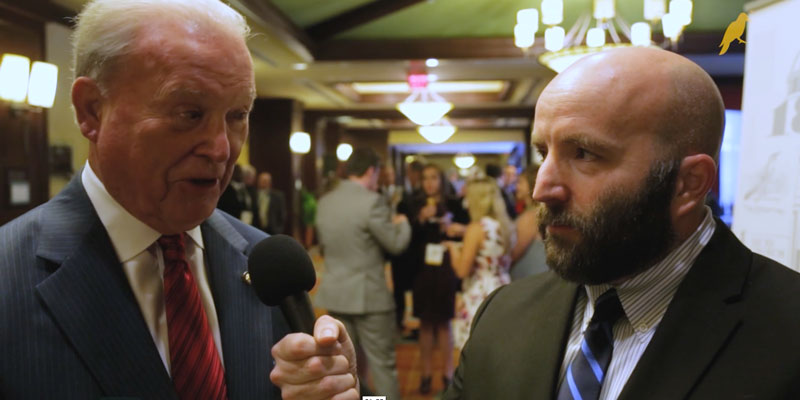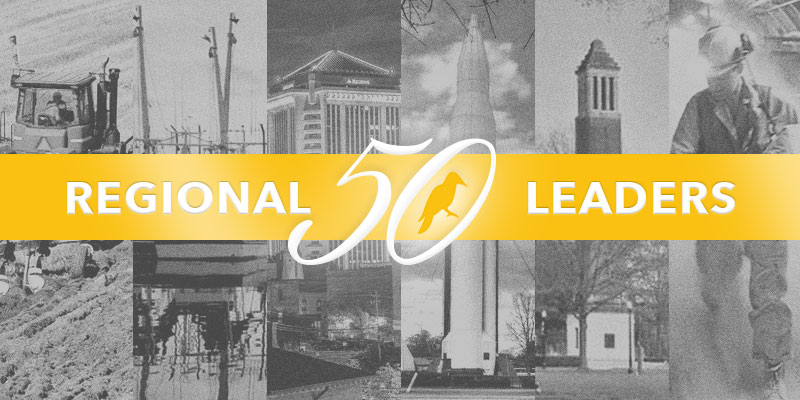Photo by https://perzonseo.com/
Cord Sachs is a Birmingham-based leadership expert and the CEO of FireSeeds, a company that helps companies find and grow great leaders and “the company behind many of Alabama’s fastest growing companies.”
The full conversation with Mr. Sachs can be heard on the Yellowhammer Radio podcast or in the video above, and a lightly edited transcript of his interview with Yellowhammer’s Andrea Tice and Scott Chambers can be read below.
Subscribe to the Yellowhammer Radio Podcast on iTunes. Learn more about Cord Sachs and Fireseeds at www.fireseeds.com
Scott Chambers: Welcome back Yellowhammer Nation. @YHN radio on Twitter, we hope you join us tonight at Hoover Tactical Firearms between six and eight P.M. We’ve got Yellowhammer News night at the range catered by Papa Johns tonight.
Andrea Tice: I know and B.J. is also going to rent out the M-16.
Scott Chambers: Nice. Come on out shoot with us tonight, six to eight P.M. Hoover Tactical Firearms. Glad they’re a sponsor of the show, 1561 Montgomery Highway, Hoover, Alabama. Come on out tonight, it’s going to be a lot of fun and we’re feeding you dinner, doesn’t get better than that right there.
Andrea Tice: Food, then shooting. It’s better that its food first, you know, and then shooting. Because like we said before, we don’t let you shoot “hangry”.
Scott Chambers: No, we don’t want anyone pulling the trigger being hangry.
Andrea Tice: Everyone suffers when you shoot hangry.
Scott Chambers: That’s right so come on out with us, it’s a lot of fun. Hoover Tactical Firearms. 1561 Montgomery Highway, Hoover, Alabama.
All right Andrea, time to welcome in our good friend Cord Sachs, to the program as we have on each and every Tuesday. Cord, how are you, my friend?
Cord Sachs: Doing well, it’s great to be here.
Scott Chambers: Great having you, man. Great having you on with us today.
Andrea Tice: Yes, and just earlier, we were talking about two school districts that had extremes. One on one side, one on the other as far as reactions. And today, you’re going to talk to us about what’s the difference between a good job or a great job so I’m interested. Let’s set up some standards.
Scott Chambers: Yeah, why is it so important, Cord? Shouldn’t we just be thankful if we have a job? Is there really big difference between having a good job or even a great job?
Cord Sachs: Absolutely. We definitely should be thankful for having a job, that’s not a small thing. But I love … Jim Collins did it great, my favorite books on leadership, business, and just principles for life, he said this, “We don’t have great schools principally because we have good schools, we don’t have great government, principally because we have good government, and few people obtain great lives in large because it’s just so easy to settle for a good life.” And so he says, “Good is the enemy of great.”
Andrea Tice: Wow. So … if it’s that big of a difference and it’s actually almost working against each other, how do you distinguish between the two?
Scott Chambers: Yeah, if it’s a good job or a great job.
Cord Sachs: Yeah, that’s a great question and we have to answer the question by asking three simple questions. Jim Collins calls this his hedgehog concept and he applies it to comparing businesses and are they good businesses or are they great businesses but we can personally apply this to our lives. And so …
Andrea Tice: Now, Cord, hang on, Cord, can I interrupt for just a second? I’m sorry …
Cord Sachs: Yeah.
Andrea Tice: You’ve got to tell me why it’s called hedgehog. They’re so cute.
Cord Sachs: The hedgehog, he does one thing and he does it really really good. And he rolls up in a little ball, and you’ll have to read the story, I’ll kind of go into it, but the hedgehog always beats the cunning fox. And he does because he’s really good and he’s focused on three specific things.
Andrea Tice: Okay.
Cord Sachs: And so that’s where it comes from.
Andrea Tice: Okay.
Cord Sachs: So there’s three questions we’re going to answer, and I want everyone to think about this wherever you are. Number one, what are you deeply passionate about, all right? Number two, what can you be the best in the world at? And then number three, what drives your personal economic engine? So those are the three questions that are going to makeup this personal hedgehog concept.
Scott Chambers: Okay, Cord. So with number one, how do you know what you might be passionate about?
Cord Sachs: Well again, this is something we’ve been thinking about since we were little kids, we’ve always been asked the question early on, “Hey, what do you want to be when you grow up?” And it’s a pretty simple … we’ve been asked that question and probably still at times we’re asking that question. “What do I want to be when I grow up?” Simple but profound and what we’re really asking is, when we get to that season in life where we ought to be doing something and having our greatest impact and our greatest contribution to the people around us, to society, what are we doing then? When we’re grown-up. That’s what grown-up is and it ought to be answered by the same thing that would be answered when you ask the question, “what would get us excited to get out of bed every morning and do, fill in the blank.
And so you start thinking about … what gets me fired up? What gets me energy, what makes me come alive? Now, is that happening in your work scenario, is that happening with your job or is it simply something to do to earn a paycheck to pass the time to simply come back to earn a paycheck, to see your life kind of fade away?
Andrea Tice: So let me ask you this, if a kid, a typical boy would say I want to be a fireman when I grow up and now he’s a banker, you know, obviously that can’t be changed but he can isolate what it was that motivated him as a child that was exciting to him about being a firefighter, what he saw of value in that and then he could apply it in the principle sense to his job as a banker?
Cord Sachs: Well I think as we grow up, obviously we learn … for me, that was me, “I want to be a fireman.” I thought that would be exciting. As I grew, as I matured, I realized I just want to be a part of something that would be exciting in my own life. And it’s the difference between me having a job and having a vocation. And I love the difference and the definition there. The difference, the definition of a job is a paid position of employment. A position, a trade, an occupation, a career are some of the synonyms. But a vocation is this, it’s defined as a strong feeling of suitability for a career or occupation that becomes your calling, your life work, your purpose or mission. So you’re thinking about what you do every day, you get up out of bed, you’re going to spend 80,000 hours in work, at work, in your work domain. If it’s something that you feel like is also part of your calling, your mission, your purpose or is it simply where you go to collect a paycheck?
Scott Chambers: Okay, say, I’m six foot seven, Cord, I’m a tall guy, so what if I were really passionate about basketball and I think I’m good enough and I want to play with Steph Curry. I mean could that lead me down the wrong path just because I’m passionate about it?
Cord Sachs: Well that’s why we’ve got to answer question number two and put it alongside question number one. So number one is what can we be deeply passionate about, number two is what can we be the best in the world at?
Andrea Tice: Ah, okay.
Cord Sachs: Let that sink in, but what can you be … what can I … as I look at my gifts as I look at my skill set, as I look at my experience, this comes with maturity as we grow out of just “I want to be a fireman” but I now have wisdom that I’ve gained as I’ve lived life and I know and if I’m intentional I can think about the things that I’ve been given that would allow me to do things that I could actually contribute in certain areas a lot more than I could others.
Andrea Tice: Okay, well let me ask you this, Cord, is it realistic to expect to find a job where I could be the best in the world? Isn’t that … is that maybe an unattainable goal, is it a little too lofty?
Cord Sachs: Well, that’s a great question, and obviously he’s not expecting it if you don’t hit that goal and you don’t actually become the best in the world, the single best person at whatever you’re doing that you’ve missed the mark. Rather, can you think that if I am to apply the principles of what I know, what I’ve experienced, what I’ve been given from God’s gifting and talents. If I apply those things over and over again, there’s a chance that I could be the best in the world. You don’t actually have to become the best in the world, you just have to be able to think, “I could be the best in the world at …” fill in the blank.
Andrea Tice: Or even, could you even say “want to be the best” in that? You actually can see yourself doing it, putting time in, in becoming the best.
Cord Sachs: Absolutely. We usually aren’t passionate about the areas that we’re not very good at.
Scott Chambers: That’s true.
Cord Sachs: It doesn’t go hand in hand.
Scott Chambers: Yeah, that’s so true. Okay so what if you’re passionate about the job and you think you can be the best in the world? I mean to me it seems like number three is the last part of the equation, right?
Cord Sachs: That’s right, you know … you’ve got to put food on the table and so logically based on where you are in life, are you married with kids? And I’ve got six kids, takes a little more contribution at work to feed six than it does maybe my first kid and so based on where I am, that has to be part of your equation. “What am I passionate about, what can I be the best in the world at?” But then “What can drive my personal economic engine?” But don’t make your choices off of question three, without allowing questions one and two to direct where you’re going to push in, into a career. And so usually when you get one and two right, number three can exponentially grow as you get better and better at whatever it is that you are now clear about giving your life to.
Andrea Tice: Okay.
Scott Chambers: Very interesting. I love your insight, Cord, that’s why we have you on every Tuesday, you bring a great insight and perspective to this stuff.
Andrea Tice: It’s kind of like getting your priorities straight will take your vehicle further down the road in this satisfaction with your job.
Cord Sachs: Yeah, sometimes we need to step back and we just need to think about principles of why we do what we do and what really matters. And that’s the whole theme here, board room to family room, how can we think about where we spend the majority of our time at work and maximize our opportunity there while it also has an impact in the family room at home where we want to leave our legacy.
Andrea Tice: Hey, Cord, I have one more question, just back up to where you mention about finding something that you can be the best at in the world. What are some processes by which you can determine that other than just going by your own opinion? Task people…
Cord Sachs: Yeah, that’s a great question. Yeah, you said have people, I mean have people, ask people, ask people who know you really well, “what am I good at? You know, tell me what do you think I’m good at?” And I think you’ll be pretty surprised some times and I think you’ll be pretty encouraged that people recognize what you do really well over and over and over again. I think we can take different identity assessments to figure out how we’re wired up and that usually going to give us clues as to what we can be the best in the world at.
I would never be the best in the world at accounting, because I am not a detail-oriented, focused, head down individual. I’ll just never be the best in the world as an accountant. But maybe as someone who’s given crazy opportunities to speak in front of audiences and think with innovator visionary thoughts, and if I get an opportunity where I get to do that, well then I might have a chance at being the best in the world at that. So you start looking at the experiences in your life and “What have I done that’s produced results?” And those are typically the areas where I’m really good at something and I typically spend time doing things that I’m good at because I’m passionate about that as well. So a couple of indicators of how you can start to think along the lines of “what could I be the best in the world at?”
Scott Chambers: Very interesting stuff, well Cord Sachs, we appreciate you being on. Let’s talk for a moment here in our final minute. If someone owns a business and wants to get the help of FireSeeds where they can bring in a great mind like yourself to help them out, how do they get in touch with you?
Cord Sachs: Yeah, just have them go to FireSeeds.com, you can read about who we are, we do recruiting, we help companies build strategies around leader development, and helping build a lumen of leaders that develop other leaders in the organization. We’d love to sit down and talk with you over coffee and to see how we can help.
Scott Chambers: All right, great, FireSeeds.com. Cord Sachs, you are a gentleman, it’s a pleasure speaking to you, we look forward to talking to you again next Tuesday.
Cord Sachs: Always a pleasure, Scott and Andrea.
Andrea Tice: All right, we’ll talk to you soon.
Scott Chambers: All right, take care. Cord Sachs, appreciate him being on.













